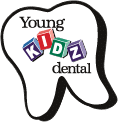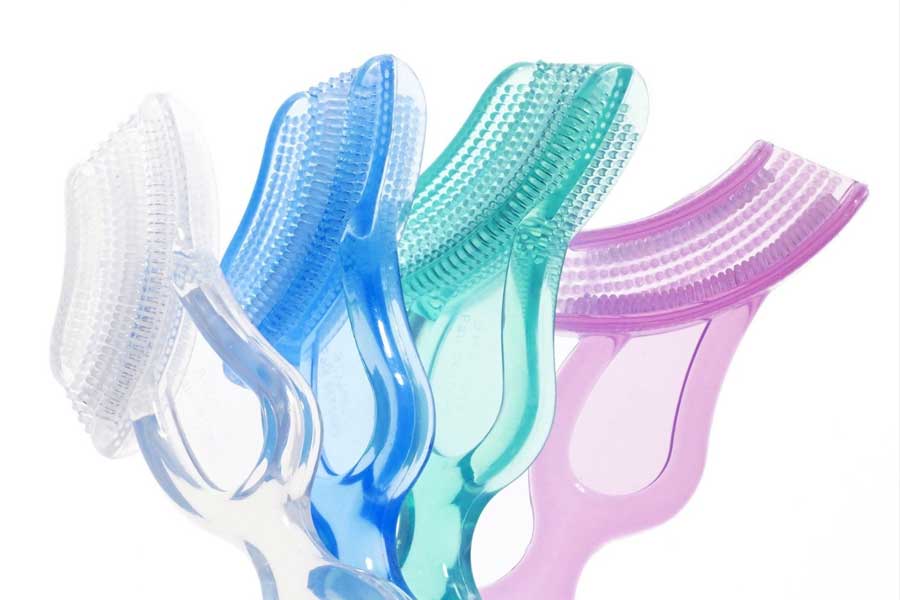Before the First Tooth
To help prevent the buildup of plaque bacteria that can lead to decay, pediatric dentists and pediatricians highly recommend regularly cleaning your newborn’s gums with a damp washcloth following feedings. In addition, take measures to prevent baby bottle tooth decay, a disease that occurs in 15 percent of children and causes severe, swift decay of baby teeth. To help prevent it, do not put your baby to bed with a bottle of formula or a sugary drink, such as juice. The possibility of tooth decay is directly related to the number of times that sweet things are in contact with the teeth (formula contains some sugar).
Brushing Baby Teeth
Around four months, a child usually begins to teethe. When the first tooth comes in, it’s time to start brushing and also set up a dentist appointment. Cavities, gingivitis and tooth decay are common problems associated with your child’s growing teeth. Brush their teeth for two minutes, twice a day to help prevent decay and to help get your baby used to the recommended brushing time.
Do Babies Need Special Products?
Just as developing children require special attention, so do their teeth. Use a toothbrush with extra-soft bristles until your child turns two to three, when it’s safe to switch to toothpaste with fluoride under your close supervision. When it comes to your baby, if you want to start training for using toothpaste in the future look for a cleanser that’s safe to swallow, fluoride-free and doesn’t contain artificial colors or preservatives.





